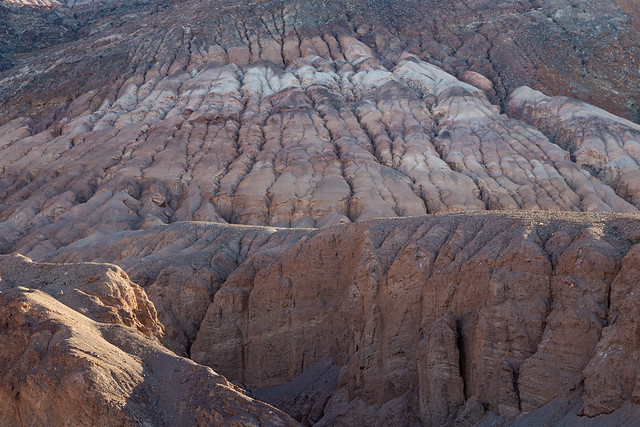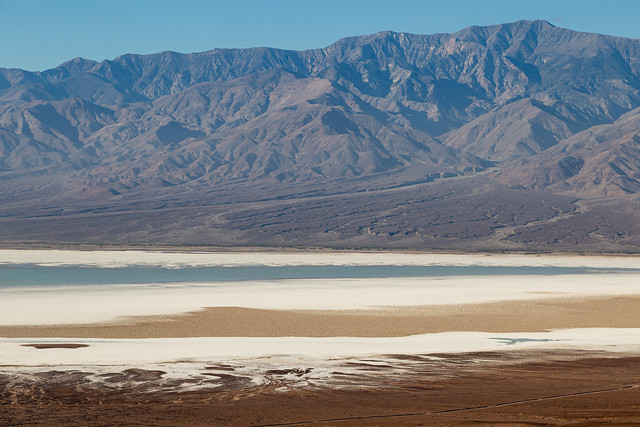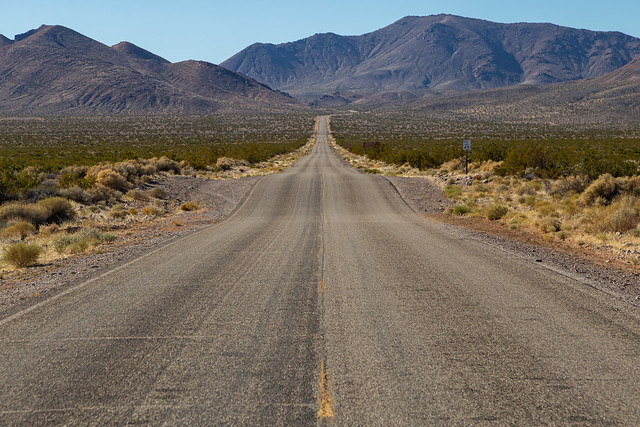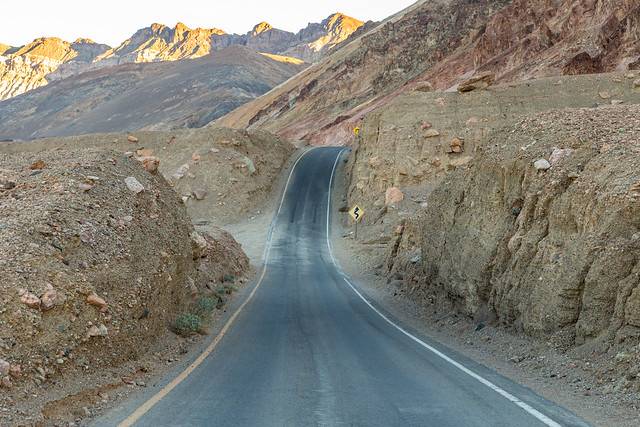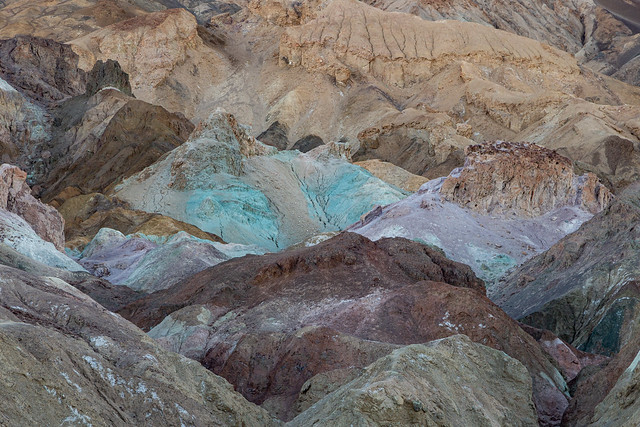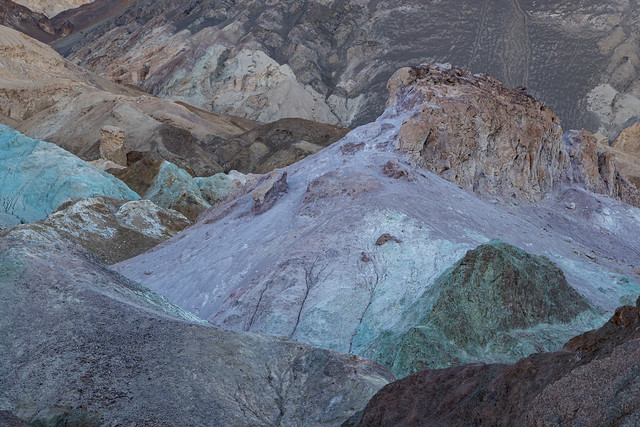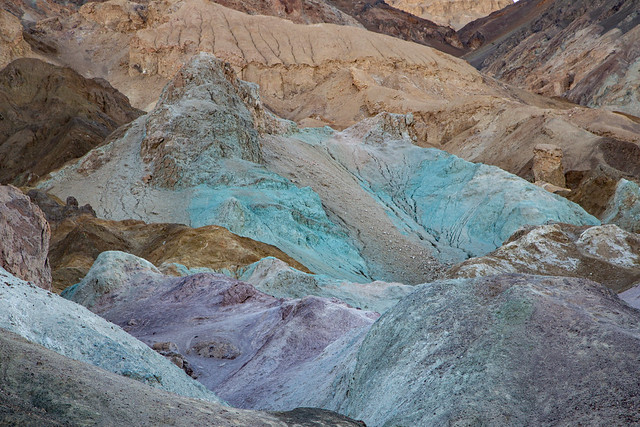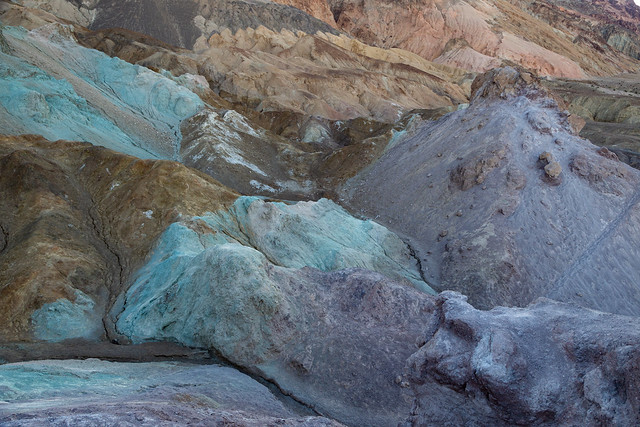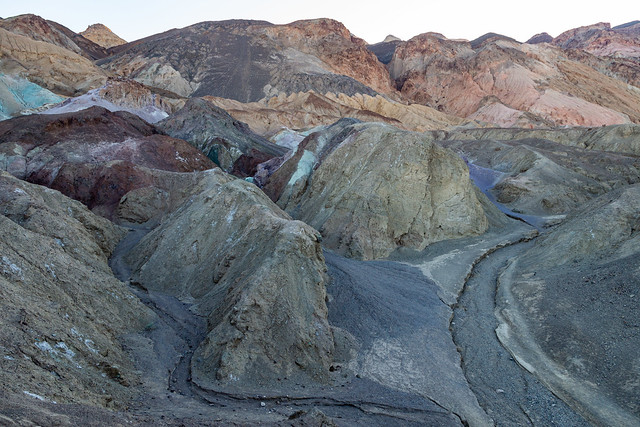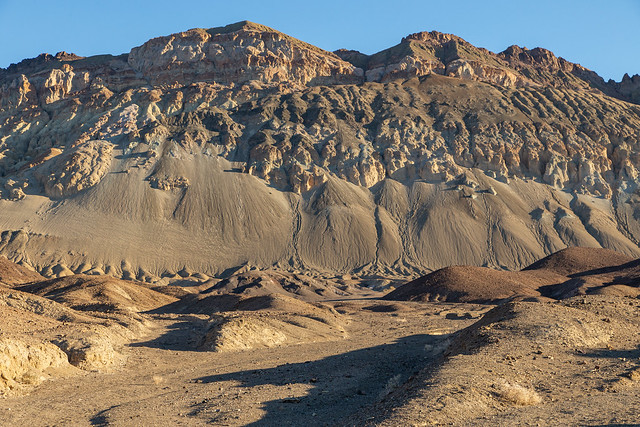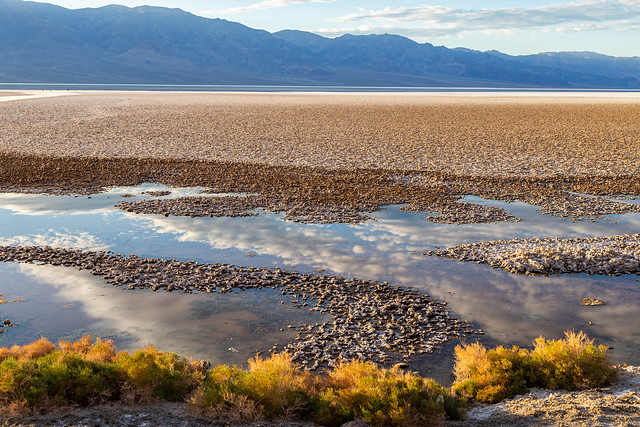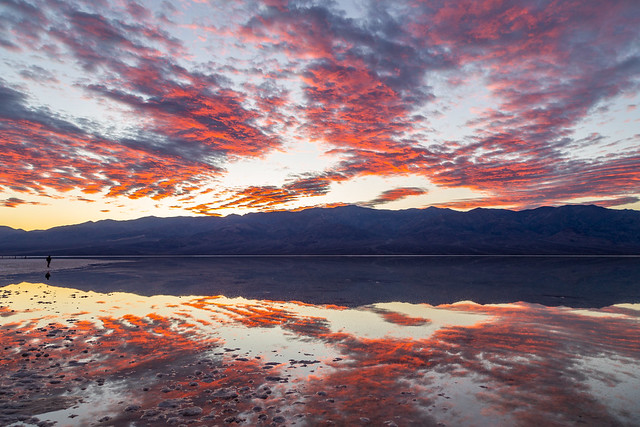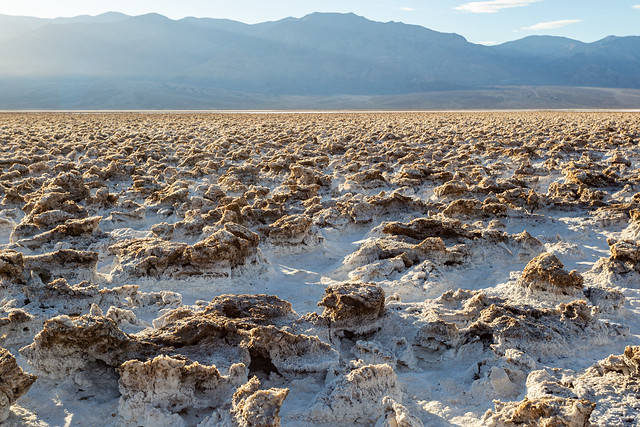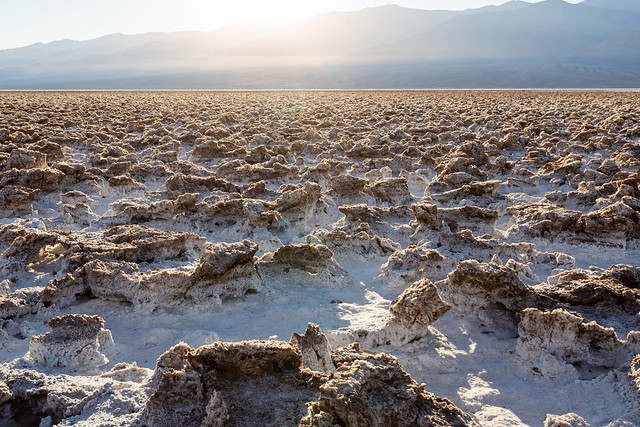But at its peak, Rhyolite boasted a population of about 7,000 people. And it also featured "concrete sidewalks, electric lights, water mains, telephone and telegraph lines, daily and weekly newspapers, a monthly magazine, police and fire departments, a hospital, school, train station and railway depot, at least three banks, a stock exchange, an opera house, a public swimming pool and two formal church buildings."
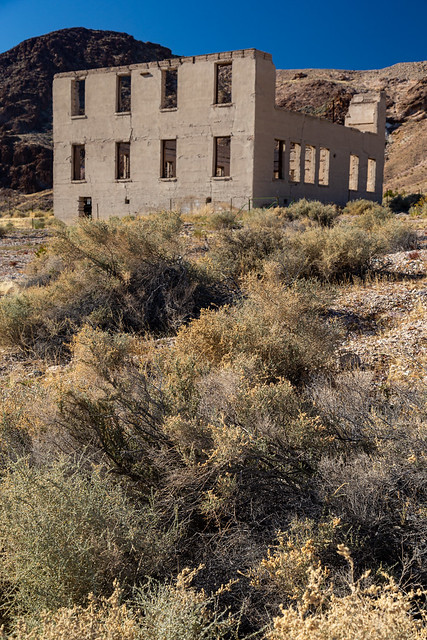
This was the former school building, which was built in 1909 and had room for 250 students. The school would close in 1911 after most families moved away after the gold mines began to decline.


Nearby was the ruins of the old Porter Brothers' Store, which was built in 1906. According to the sign in front of the building, "it was the go-to destination for Christmas shopping. This was due in part to its amazing displays that rivaled those of the department stores in major cities. In fact, the store was the largest employer of people in Rhyolite aside from the mines. Unfortunately, even the popular store was not immune to the downturn that would decimate Ryholite's businesses; it closed in 1910."
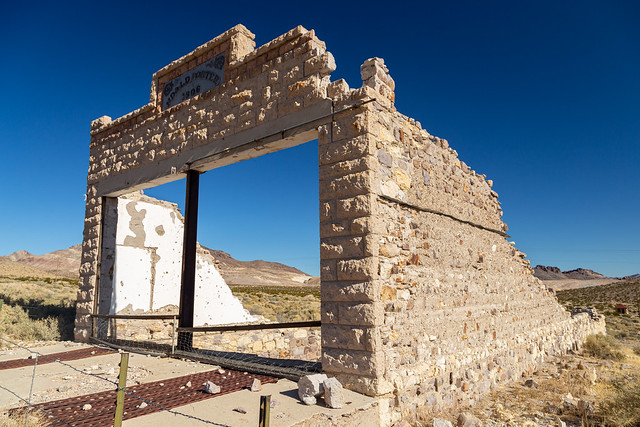
One of the most prominent buildings in Ryholite was the Cook Bank Building, which was built in 1908. The three-story building cost more that $90,000 to build (which would be about $2.9 million in today's dollars) and featured marble staircases and mahogany accents. But it was shortlived, the bank closed in 1910.

The best preserved building in Rhyolite is the train station, which was built in 1908 for the Las Vegas & Tonopah Railroad. But the station opened right at the time that the town began to decline, and within months of its completion the station saw more people leaving than it saw arriving.

The railroad ceased operations in 1919, but the station got new life in the 1930s when it was used as a casino and brothel for a few years. In the 1960s, it opened as a museum and gift shop. It was empty on our visit, surrounded by a tall fence that made it hard to take pictures.


We followed the dusty dirt road to more remnants of Rhyolite's past. Here is what is called the "Miner's Cabin," although no one is sure what it was once used for. It was built around 1906, and due to its proximity to the railroad tracks and the old red-light district, it could have been used as a brothel or as offices for the railroad.

Nearby were the ruins of the former jail, built in 1907. Shame that it's been marred by so much graffiti.

From here was a good view looking back at the old bank building, and the tall mountains that surround it.
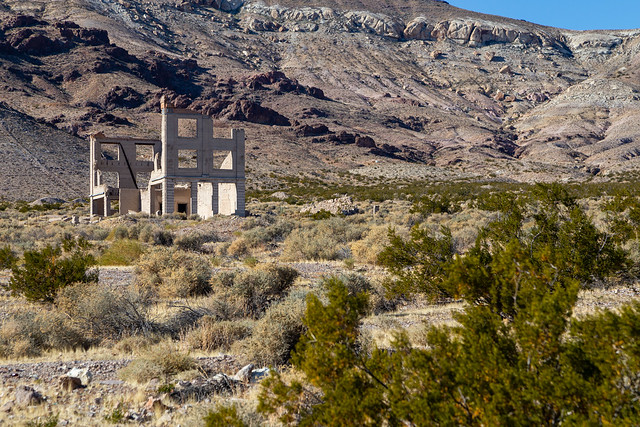
And the old train station...
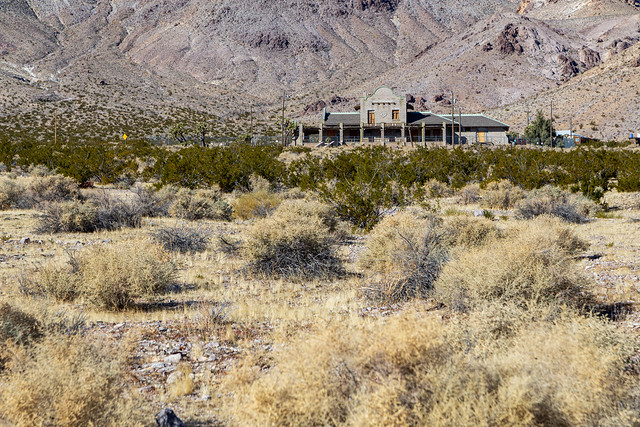
Next to Rhyolite is the Goldwell Open Air Museum, an outdoor sculpture park and artist's workspace. The most prominent sculpture here is The Last Supper, which features life-size replicas of the figures from da Vinci's Last Supper. It was created in 1984 by Albert Szukalski, who draped plaster-soaked burlap over live models in order to create the ghostly figures.

The same technique was used to create this piece, called Ghost Rider.

And another large sculpture there was Lady Desert The Venus of Nevada by Dr. Hugo Heyrman, made out of cinderblocks.

The sculpture collection was a good choice, I guess, to help us get acclimated back into the strange landscape of Las Vegas. We gassed up the car in the nearby town of Beatty and drove off.
The drive back to Las Vegas is strange. There are lost of empty stretches of desert (and as they said in Casino: "A lot of holes in the desert, and a lot of problems are buried in those holes"). Then you see some random army bases in the distance. Was it Area 51? Perhaps, the alien-themed gas stations certainly suggest it might be. We could never tell for certain, since Area 51 doesn't show up on Google Maps for some reason. But then all of a sudden you hit city, and Las Vegas looms ahead of you.
We checked into our hotel, which was in the old downtown section of the city by the Freemont Street Experience. And it is an experience. And after days of quiet solitude in Death Valley, it was a culture shock. It was loud, crowded and busy.



We walked around until we saw someone dancing on the street as a "naked Trump" waving a sign saying "Make America Sexy Again." That, and the fact that we had an early flight home the next day, meant that it was time to head back to the hotel for the night. There are some things that happen in Vegas that need to stay in Vegas.

